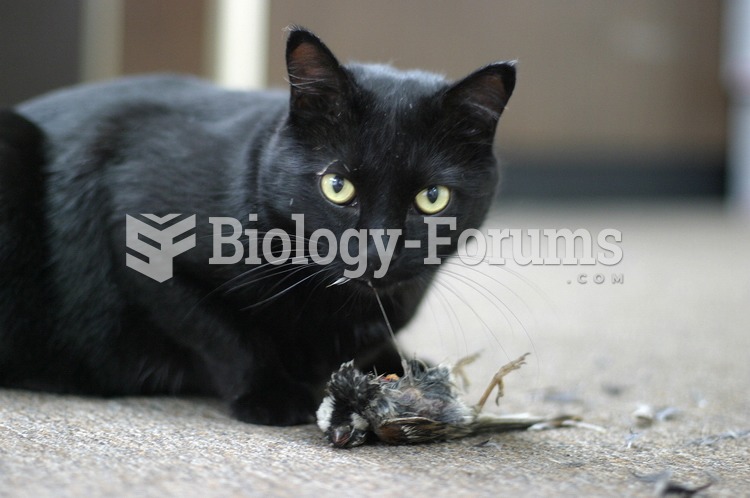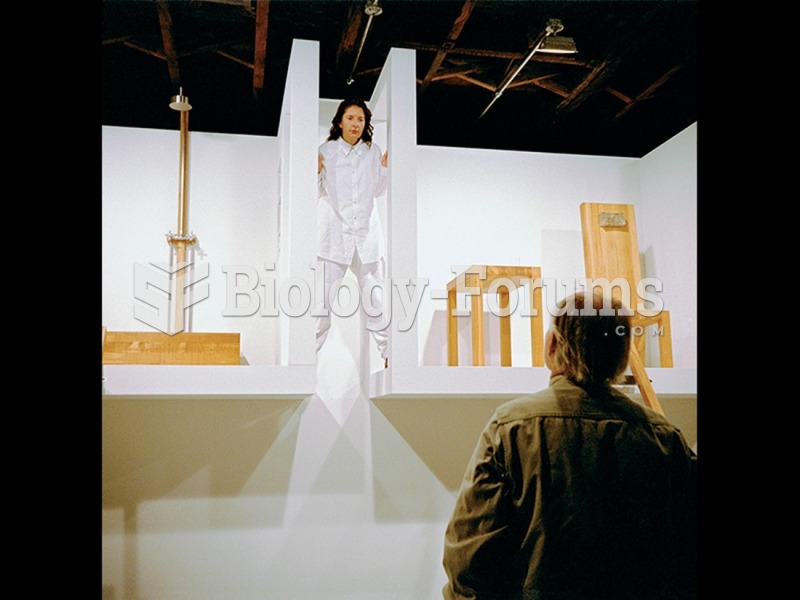|
|
|
Certain chemicals, after ingestion, can be converted by the body into cyanide. Most of these chemicals have been removed from the market, but some old nail polish remover, solvents, and plastics manufacturing solutions can contain these substances.
Asthma cases in Americans are about 75% higher today than they were in 1980.
Most childhood vaccines are 90–99% effective in preventing disease. Side effects are rarely serious.
Though newer “smart” infusion pumps are increasingly becoming more sophisticated, they cannot prevent all programming and administration errors. Health care professionals that use smart infusion pumps must still practice the rights of medication administration and have other professionals double-check all high-risk infusions.
The average human gut is home to perhaps 500 to 1,000 different species of bacteria.






